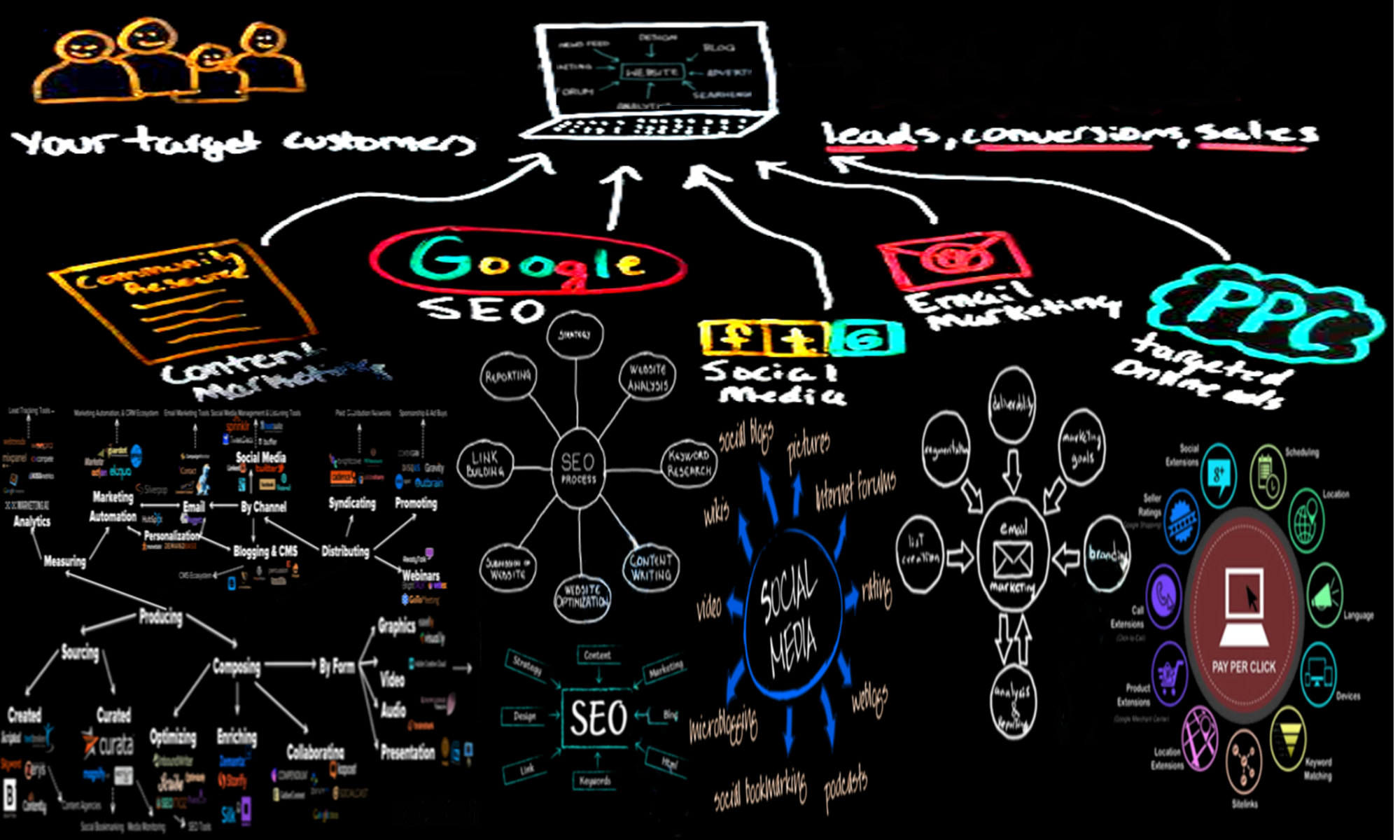Search Engine Optimization (SEO), Search engine spam, Search Engine Marketing (SEM), Sponsored search, Compensation Methods: Conversion rate, Pay per click, Post-click marketing, Click Through Rate (CTR), View-through rate (VTR), Cost Per Action (CPA), effective Cost Per Action (eCPA), Cost Per Click or Pay Per Click (CPC or PPC), Cost Per Impression (CPI), Cost Per Mille (CPM), also known as Cost per thousand (CPT), effective Cost Per Mille (eCPM), Other performance-based compensation, Click fraud, Botnet, Zombie computer, Spyware, Fast flux, Scareware,Seeding agency, Search analytics, Web analytics; Computer insecurity, Cyber spying, Identity theft, Industrial espionage, Malvertising, Riskware, spam ping, trackbacks, Spam blogs, Forum spam,Blog spam, Social spam, Referrer spam, Spamhaus, List poisoning, Affiliate marketing- spamming, trademark infringement, false advertising, cookie stuffing, typosquatting, Revenue sharing,AdSense, AdWords, Adware, AdECN, Right Media, DoubleClick, OpenX, AppNexus, Ad serving, content development, spam bots, Visual marketing, Article marketing, Advertorial, Paid News (India), Lead scoring, Pop-ups/pop-unders, Floating ad, bait-and-switch, Trick banners, Expanding ad, Interstitial ads, Click to reveal, Drive-by downloads, URL redirection, cybersquatting, brandjacking, In-text advertising, Spam, Unsolicited commercial email, Bulk email software, e-mail drip marketing, email spoofing, phishing, Link manipulation, Filter evasion, Website forgery, Multi-level marketing (MLM), pyramid schemes, Social engineering (security), Browser hijacking, Privacy-invasive software, Privacy and Data Collection, Targeted threat, Behavioral targeting, Digital identity,Internet privacy, Online identity, Reality mining, Trustworthiness of advertisers, Fraud on the Advertiser, Targeted marketing, Vulnerability (computing), Web security exploits: Infectious malware: viruses and worms, Concealment: Viruses, trojan horses, rootkits, and backdoors, Vulnerability to malware, Security defects in software, keylogger, Insecure design or user error, Over-privileged users and over-privileged code, scripting applications, Technological variations, Heterogeneous clients, Use of the same operating system, Anti-malware strategies, Anti-virus and anti-malware software, Website security scans, Eliminating over-privileged code, Grayware, Black hat search engine optimization, Parasite hosting, Ad-blocking, Banner blindness, Anti-targeting technologies,buffer-overrun vulnerability, Security in Web applications, Web server overload causes, Trademark bidding, Compensation disclosure, Lack of industry standards, consumer confusion,misrepresentation, confusingly similar, Exhaustion of rights, Session capping, Frequency capping, stealth marketing, astroturfing, Front groups, sockpuppets, spamdexing, 302 Google Jacking,search engine index spamming, Google bomb, Digital footprint, Cloaking, Doorway pages, Keyword stuffing, Methods of website linking, Scraper site, Server farm, Spam in blogs, Strongly connected component, Web guide, Click farm, Link farm, Content farm, Subterfuge, Man-in-the-browser MITM, Spoofing attack, Homepage hijacking, Mousetrapping, Spamdexing, TrustRank,Clickjacking, Address munging, Directory Harvest Attack, Advance-fee fraud, Lottery scam, Make Money Fast, identity theft, Programmatic Marketing, Ad exchange, Mobile advertising, Demand-side platform, Supply-side platform, Real-time bidding, ad networks
The Merchants Burden - The Consumers Confusion
